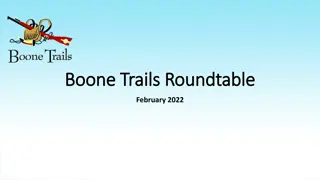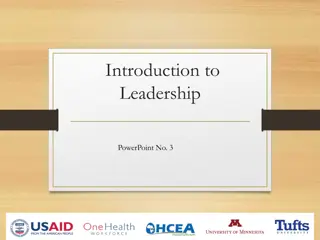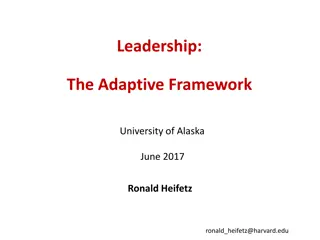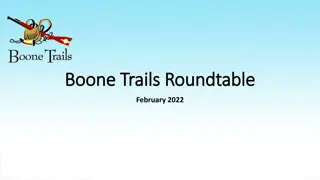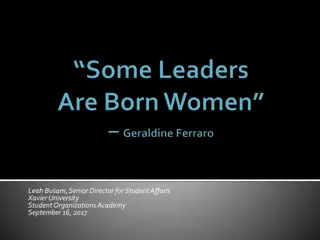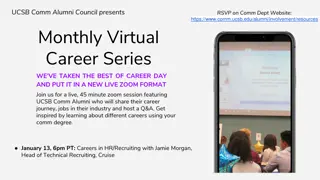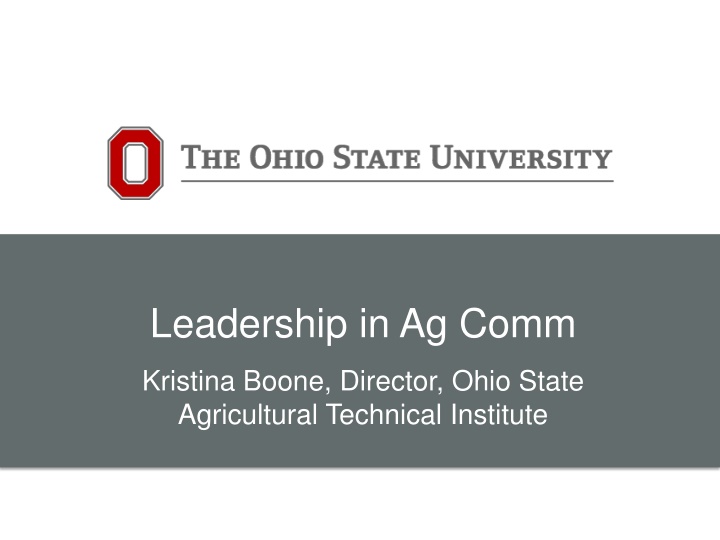
Leadership Strategies for Agricultural Communication Growth
Discover essential leadership insights and strategies for success in agricultural communication. Learn about self-awareness, environmental awareness, decision-making processes, and fostering a culture of learning and achievement. Embrace resilience, delegation, conflict resolution, and time management skills to excel in leadership roles.
Download Presentation

Please find below an Image/Link to download the presentation.
The content on the website is provided AS IS for your information and personal use only. It may not be sold, licensed, or shared on other websites without obtaining consent from the author. If you encounter any issues during the download, it is possible that the publisher has removed the file from their server.
You are allowed to download the files provided on this website for personal or commercial use, subject to the condition that they are used lawfully. All files are the property of their respective owners.
The content on the website is provided AS IS for your information and personal use only. It may not be sold, licensed, or shared on other websites without obtaining consent from the author.
E N D
Presentation Transcript
Leadership in Ag Comm Kristina Boone, Director, Ohio State Agricultural Technical Institute
Leadership Authority/Administration Some leadership training benefits everyone; we all lead projects, students, etc. Can t really be a good administrator without strong leadership skills 2
First steps Know yourself DiSC, MBTI, etc. or the Big Five Identify and catalog your emotional triggers Consider your orientation to change Take the implicit bias test (Project Implicit) Check out Immunity to Change Identify your emotional intelligence and where you have gaps Identify your competencies (A Guide for Leaders in Higher Education) Explore your goals and your no-gos 3
Next step Know your environment/system The status quo is tenacious Give time/effort to walk around the lake Identify organization s: Structure Culture Rituals Folklore Norms Climate 4
To Lead or Not to Lead (Apologies to Shakespeare) Explore the opportunity; don t shut doors too quickly How does it align with your goals? And your real job? How fertile is the organization for what you would want to accomplish? How much inertia? What can I give up and what will I give up? Will I have a mentor? How much time will the leadership work take? Do you have support at work AND at home? 5
Learning and Leading Work to define the scope and outcomes with chair or dean Form the team matrix of representation and attitude Clearly establish outcomes Identify what parts of the problem or work is adaptive v. technical (Adaptive Leadership) Use productive disequilibrium (Adaptive Leadership) Celebrate and communicate wins/achievements/meeting goals Reinforce learning 6
Lessons Learned Be resilient and take care of yourself Delegate give others the opportunity to grow, to fail, and to succeed Fail forward through reflection Identify what you AREN T going to do in your real job; get agreement with chair Protect junior faculty time Address conflict (and know your resolution tools) Know your timeline, don t let others create more urgency or avoid work with this must happen first 7
Resources The Practice of Adaptive Leadership Heifetz, Grashow, Linsky Project Implicit, Harvard Reframing Organizations Bolman and Deal A Guide for Leaders in Higher Education Ruben, De Lisi, Gigliotti Immunity to Change Lahey and Kegan Conflict Coaching Jones and Brinkert Seven Habits of Highly Effective People Covey Scholarship Reconsidered Boyer Adaptive Capacity -- Eichholz Other leaders, on-campus training, LEAD 21 8












